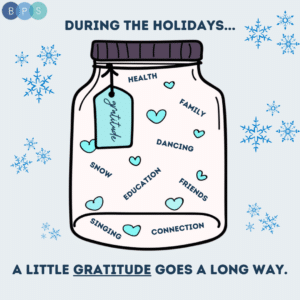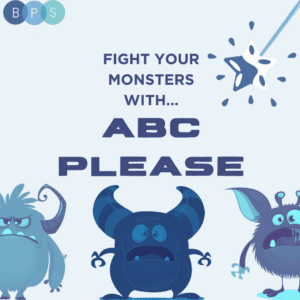Happy Emotional Independence Day: Let's start today!
How to gain emotional independence – 3 simple ways to start today OR Happy Emotional Independence: Let's start today!
Do you feel like you’re consistently putting out fires for your loved ones? Or maybe you’re on the other side, and your loved ones seem like they’re always putting out your fires. When we don’t know how to regulate our own emotions it can seem like we are unintentional arsonists in need of a firefighter (supportive loved one) to redeem us. When our firefighters come to our rescue, we may feel reassured or validated. They make us feel like we aren’t crazy, and our emotions are valid. They cool us down and might even do damage control for us while we bask in their comfort.
Now, you might be reading this and think, “Yes! [insert loved one’s name] is my firefighter, and I’m so happy I have them in my life.” And I’d agree with you; it’s helpful to have supportive firefighters when we are going through life stressors. However, if you are an "unintentional arsonist" who feels like they consistently set fires, your firefighters may become burnt out if we do not know how to put out our own fires or prevent them from starting. In addition, our firefighters occasionally have their own fires to put out, which may prevent them from putting out yours. When we don’t have the skills to regulate our own emotions, it can lead to various problems in our relationship and possibly exacerbate our fires.
If this sounds like you, it might be time to gain some emotional independence and learn how to be your own firefighter. Emotional independence is the ability to manage your own emotions without the need for others’ approval, attention, or validation. Before you continue reading, it is important to pause and reflect on what emotional independence means to you. Is this important to you? Are you exhausted from not knowing how to put out your fires? We are laying down our matches and picking up our coping tools. Below are three simple ways we can practice emotional independence today:
1. Incorporating mindfulness into your day
What is mindfulness?
Mindfulness is being aware of what is happening inside you, such as your thoughts, emotions, and body sensations, as well as your surroundings.
Why do we care?
Mindfulness allows us to observe our internal and external processes without reacting to them. Have you ever done a behavior and instantly regretted it? You might have even explained yourself to someone saying, “I don’t know what I was thinking.” Often when we feel strong emotions, we might not notice our urge to do a behavior, and we just do it. Mindfulness slows this process down so we can notice our emotions and our action urge, which will help us gain control of our emotions so that we do not do a behavior that we might regret.
How do we do it?
Mindfulness is like a muscle that needs to be strengthened by LOTS of practice. This may look like doing one task at a time, such as watching your favorite TV show and only paying attention to the episode. When a thought arises about a previous episode, you notice it and redirect your attention back to the show. It can also look like noticing your own judgments (both good and bad) while watching the show. You may notice body sensations while watching the show and simply observe them before returning your attention to the show. If you are consistently redirecting your attention back to the activity, you are practicing mindfulness.
2.Challenge your thoughts
What is a thought?
Our thoughts are simply sensations bouncing around in our minds. They are not facts, no matter how loud they sound, how long they stay, or how frequently they come. I like to think of our thoughts as guests. You get to choose how long they stay and how you interact with them.
Why do we care?
When we treat our thoughts as facts, it can lead to emotional suffering and possibly regrettable behavior. Agreeing with our thoughts can often lead to a self-fulfilling prophecy. Have you ever thought that someone did not like you, so then you acted disinterested in them? And because you acted disinterested, they probably started to not like you. That is a self-fulfilling prophecy. Maybe they didn’t like you to begin with, or maybe your thoughts just led you to believe that, so you made it come true with your behaviors.
How do we do it?
When we challenge our thoughts, we counteract them by formulating our own thoughts. This may include logically arguing against your thought, checking the facts on your thought by looking at the evidence for/against it, doing the exact opposite of what your thought wants you to do to see if it’s true (i.e., thinking that if you don’t wear makeup, then your crush won’t like you anymore so you don’t wear makeup), or coping ahead with the imagined negative consequence (i.e., afraid to get fired from your job so you imagine what you would do to cope with getting fired).
3.Practice self-validation
What is self-validation?
Self-validation is when you find the kernel of truth in the situation you face and tell yourself that your emotions, thoughts, or behaviors make sense. It is NOT giving approval, encouragement, or compliments.
Why do we care?
When we self-validate, it lowers our emotional arousal so that problem-solving is possible. It also alleviates some pressure on our firefighters for needing them to validate us when we are upset.
How do we do it?
When you self-validate, make sure that you are only validating the valid and not the invalid. For example, if I yelled at my friend for forgetting to pick me up, I might validate my frustration, disappointment, or urge to yell. I would not validate the behavior of yelling. Self-validation may also look like acknowledging your emotions in the present without trying to avoid or push them away. For example, if I am frustrated about my friend forgetting to pick me up, then I would say, “I’m really frustrated right now” and sit in that frustration rather than telling myself “I shouldn’t be upset.”
Linehan, M., M., (2015). DBT Training Manual. New York, NY: The Guilford Press.

